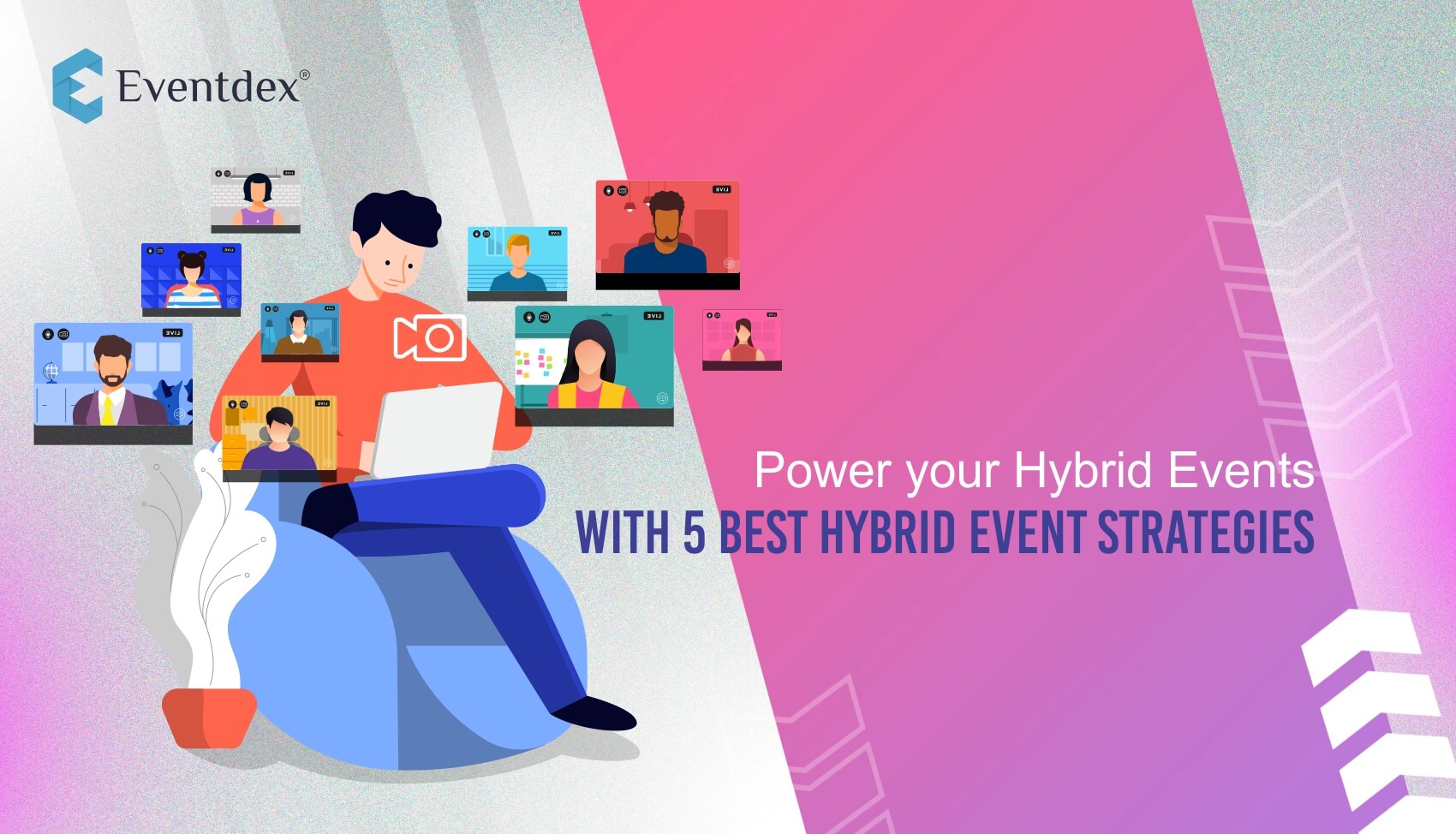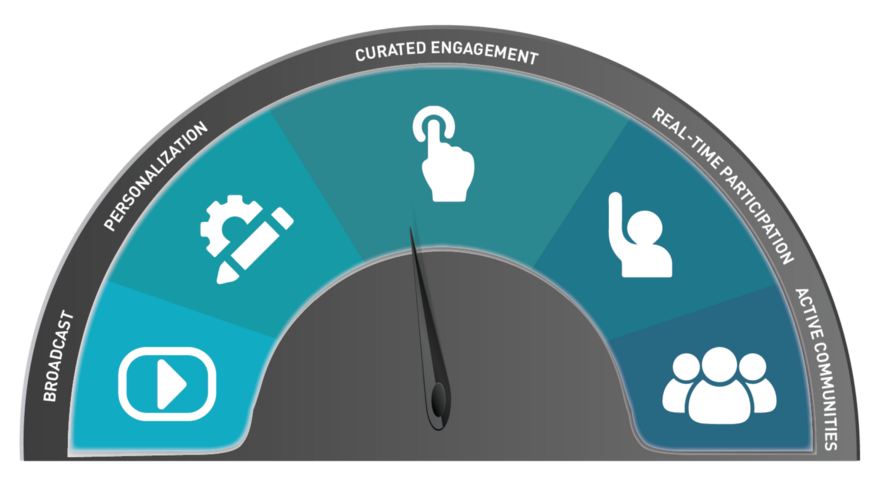
Power your Hybrid Events with 5 Best Hybrid Event Strategies
Understanding the needs for a hybrid event platform in 2022
Before we get into how to optimize your hybrid event strategy, let’s define what a hybrid event is. It’s precisely what you’re thinking: a mixture of hybrid and virtual events. A hybrid event combines in-person and digital elements to provide the best possible experience for each audience.
COVID-19 compelled the event industry to shift from standard meetings or sustainable conferences to virtual meetings or virtual conferences. If you’re holding a hybrid event for the first time, you’re probably seeking advice on how to make it safe and successful.
Here are some helpful hybrid event strategy tips required to create sustainable events that are ROI-driven and impactful. Consider these features while choosing a virtual/hybrid event platform.
5 must-have hybrid event strategies
- Understand audience needs
Event planners can easily become overwhelmed by the variety of hybrid event platforms and technologies now available to execute an event. But understanding the audience’s needs is the most important hybrid event strategy. While you want both virtual and in-person attendees to feel involved and connected to the event, they will have quite different experiences. You should examine the two groups’ diverse requirements to appropriately set expectations and reach the right people for your event.
For instance, Attendees who want to attend in person are drawn to possibilities for tactile, face-to-face interaction, they will want to know that they’ll be able to interact with speakers, exhibitors, and goods in person. Whereas, Virtual participants are more likely to place a premium on their own safety and financial well-being. They may also be less committed to the event and want to ensure that getting there will be easy and affordable. To strike a balance between the two, assigning a team member to ensure that the virtual and in-person experiences are consistent can be beneficial.
Coordinate with venue partner
Another important hybrid event strategy is to have fair coordination with event planners. A close partnership with the venue hosting the in-person gathering is required for a successful hybrid event. That involves not only having high-speed internet and a robust on-the-ground A/V staff to handle technical concerns, but also customizing production for distant participants through optimum room layouts, breakout areas, and technological tools. For instance, Hyatt recently launched a suite of innovative tools across its properties to help event planners execute sustainable events across in-person and virtual/hybrid event platforms.
Having such collaboration with venue partners not only guides them through the process but also provides an immersive experience to wow both in-person and remote audiences.
Flexible Event Schedule & Registration
Another hybrid event strategy that is crucial during this pandemic time is having a flexible event schedule & registration process. Since travel limitations change from day to day, hosting organizations must make it easy for participants to adjust their arrangements. Someone who isn’t able to commit to attending in person could find the thought of visiting in a few months. Flexible event scheduling can help attendees accommodate from various time zones. Make it simple for registrants to upgrade to in-person attendance if circumstances permit — or to switch from in-person attendance to virtual participation if new limitations keep them at home.

Encourage Collaboration
The true challenge of hybrid events is facilitating interactions between virtual and in-person audiences. Putting a screen onstage to allow distant attendees to participate in a presentation or ask questions, or presenting individual tablets to in-person attendees for one-on-one discussions with digital participants, might be one solution to the problem. Keeping your attendees involved, whether in person or from the comfort of their living room, may help bridge the gap and establish a real feeling of community.
Using breakout sessions with speakers, networking opportunities, and live chats as part of your immersive event experience helps keep participants engaged and interested. Q&As, polling, gamification, and contests are all effective hybrid event strategies to keep attendees engaged across all platforms.
Lead Generation & Analytics
Recognizing a virtual/hybrid event platform will be able to view far more than just the attendees’ contact information. A smart virtual/hybrid event platform can track how many people attend the sessions, where they go in a virtual exhibit hall, how they interact with the keynote speaker, which event aspects they interact with (and for how long), who answers polling questions, and much more.
This is critical information for presenters, yet they may not be aware of it. Make sure to familiarize yourself with these aspects ahead of time so that any pertinent information may be communicated with sponsors and presenters.
Eventdex’s hybrid event platform comes with advanced real-time event analytics that lets organizers gauge the interaction levels in virtual events.
Conclusion
The most essential component of a successful hybrid events strategy is having the right hybrid event platform in place to support it. With a reliable hybrid event platform, an event organizer can ensure effective communication with both in-person and virtual attendees.
Hybrid events are a great way to reach out to two different groups of people, and you don’t want to lose out on some of the unique advantages that come with the format. With these tips, you should be able to create a hybrid event marketing plan that appeals to a wide range of guests. Lastly, don’t stress too much over your hybrid event. All-in-all, an event is supposed to be fun and informative.
If you’re interested in any of the services, please contact us. Eventdex can offer to help you market your events. http://eventdex.com/contact-us/
